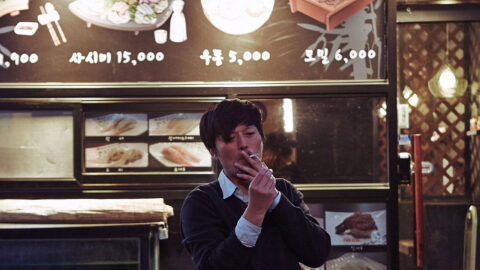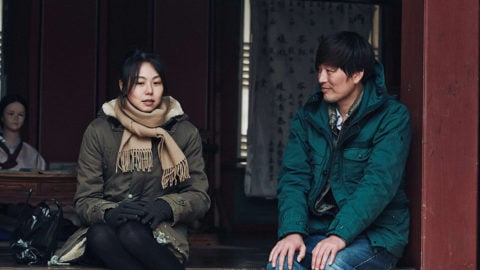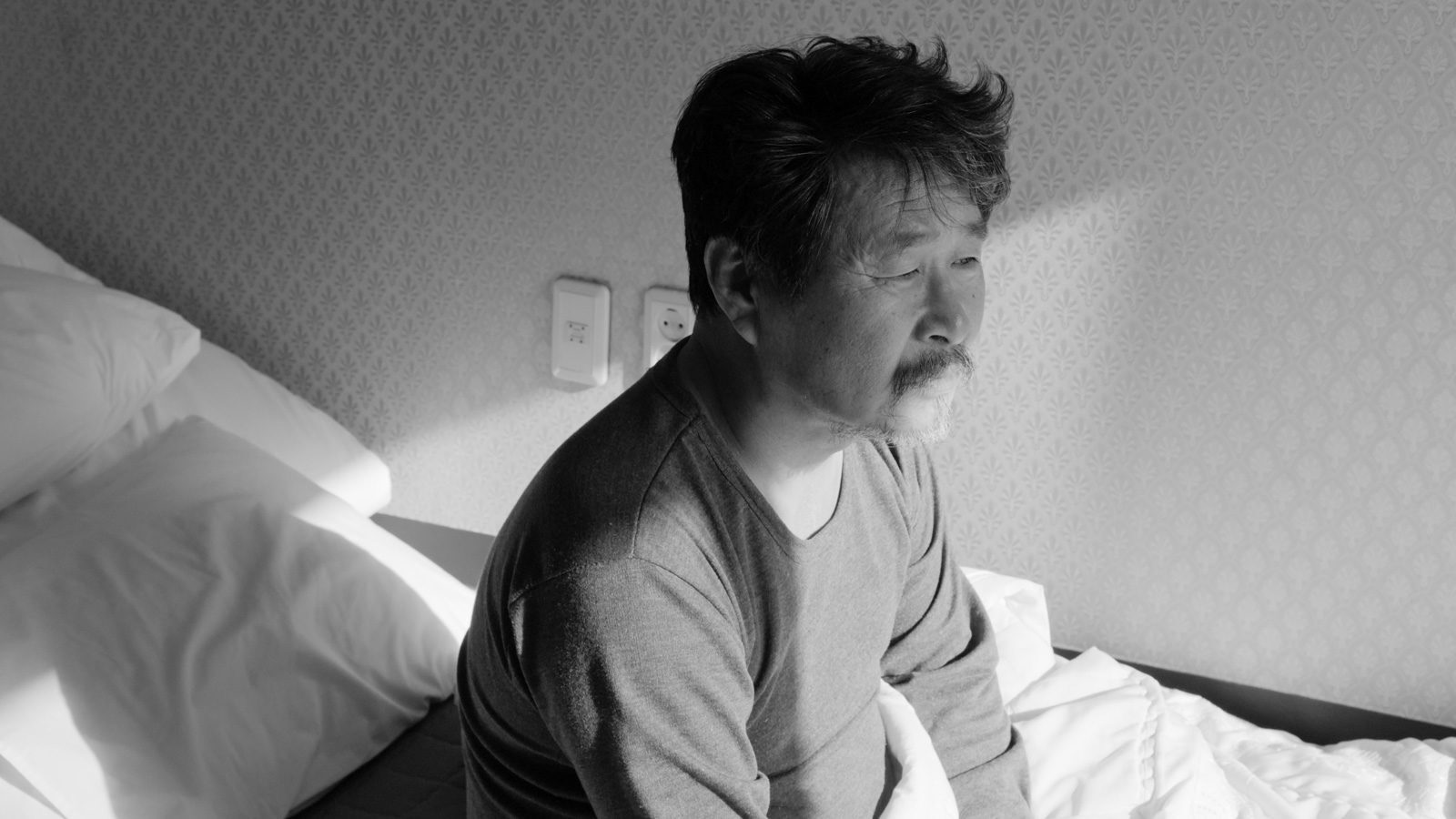
The Big Screen: Hotel by the River
How much small talk before the truth comes spilling out? Over the course of his legendarily prolific career (the latest stats: 23 features since 1996, six in just over two years), Hong Sangsoo has written more aimless conversation than just about any other filmmaker around. Sure, his dialogue can be wielded with intent—to wound or console or disclose—but just as often it’s filler, a device for killing time. In his new film Hotel by the River, two sets of characters convene at the remote location of the title seeking different forms of emotional exchange: Sanghee (Kim Min-hee), a young woman who has just gone through a bitter breakup, accepts some tough love and platonic cuddling from her friend Yeonju (Song Seon-mi); elsewhere on the premises, an aging poet named Ko Younghwan (Ki Joo-bong) is meeting with his two estranged sons to tell them death might be coming for him soon. From this double setup, which unfolds over a single day, you might expect a confrontation more immediate than what ends up occurring. But the words, in true Hong fashion, are mostly tossed-off and evasive, and it’s never clear whether these five sad sacks are just warming up to show us how they really feel.
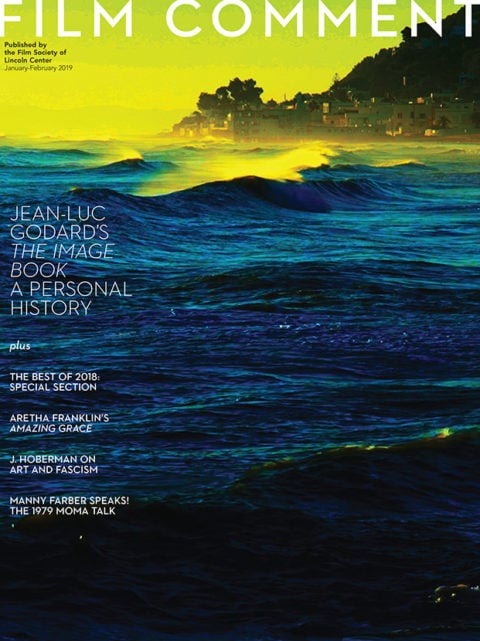
The inertia of language has never stopped Hong from making some of the chattiest movies in the world, and Hotel by the River has its share of amusingly meandering banter: in one early scene, Younghwan talks in circles to keep his sons from coming up to see him in his room (though we never learn what it is he might be hiding); in another, Yeonju embarrasses Sanghee by hemming and hawing about whether to approach one of Younghwan’s sons, a mildly successful independent filmmaker, for an autograph. At the same time, the movie showcases its director as a maestro of silence. We watch the characters drift through the hotel’s drab spaces, walking up flights of stairs, gazing out of windows, loitering in the corridors. In this depopulated setting, surrounded by a ghostly winter landscape, we never catch sight of other people, save for a sycophantic receptionist enamored of her semi-famous lodgers. Sometimes Hong just leaves us to watch Sanghee and Yeonju lying in bed in each other’s arms, as if gripped by a sudden case of narcolepsy.
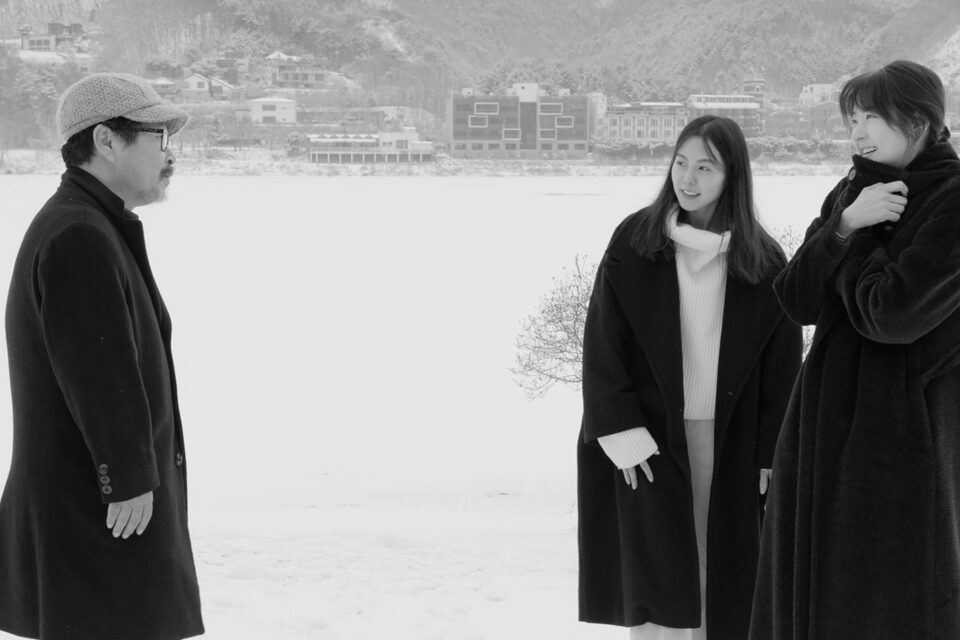
The women’s embrace suggests a mood of intimacy that never actually takes hold in the film. They may be meeting to soothe men-inflicted wounds, but beyond a few moments of perfunctory candor, their relationship comes off chilly and inscrutable. Meanwhile, Younghwan’s confession of mortal thoughts receives a tepid response from his sons, who treat both him and each other with a vaguely combative standoffishness. In both groups, the dialogue keeps circling back to people who never appear on screen—including a daughter-in-law Younghwan repeatedly professes to be fond of—making it clear how reluctant the characters are to handle the business in front of them. When the gloves do come off in the film’s brief, booze-soaked pseudo-climax (one that will remind viewers of a similar setpiece in 2017’s exquisite On the Beach at Night Alone), what’s revealed is a familiar conflict between a neglectful father and his resentful sons. With their harsh words, the younger generation gets a chance to finally enact revenge on the patriarch (“a monster”), a moment they must have imagined many times before.
Hong’s descriptions of his quick-and-dirty filmmaking style—which typically involves him conceiving a scene the day it’s being shot, with the physical details limited to what’s immediately available to him—have always seemed at odds with his formal and emotional precision. This is not a director casually documenting human behavior on the fly; in some of his most beautifully structured films, like Tale of Cinema and Right Now, Wrong Then, mundane details are echoed and layered in ways that give urgency to the tenuous connections of strangers. But even as he continues to churn out movies in a similar vein, not all Hongs are equal. For all its solemn beauty, Hotel by the River is lax and under-imagined compared to Hong’s masterpieces. Love and death may be the themes here, but the stakes have never felt quite this low, the energy so sluggish. It’s particularly disconcerting to watch Kim Min-hee, who has buoyed many of the director’s recent projects with her uncontainable charisma, reduced to a somnambulant figure. Weariness, even for this Hong fan, sets in. When the women crawl back into bed after another round of inconsequential conversation, you’re tempted to join them in sleeping this one out.
Andrew Chan is web editor at The Criterion Collection. He has been contributing to Film Comment since 2008.





